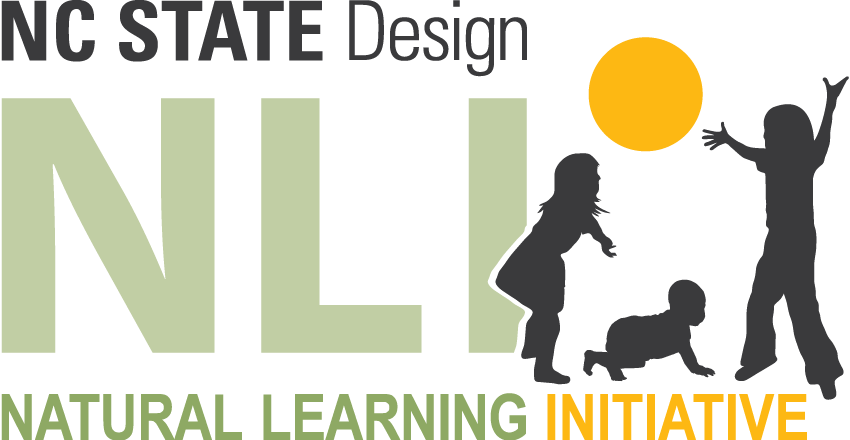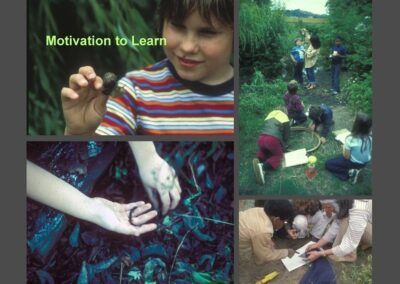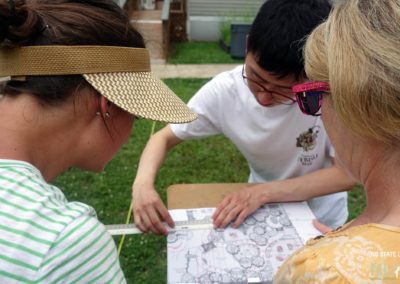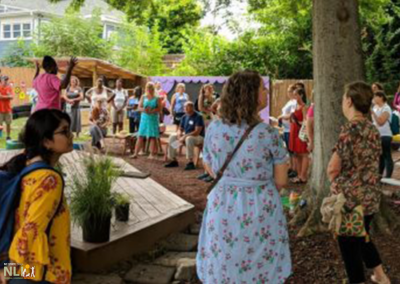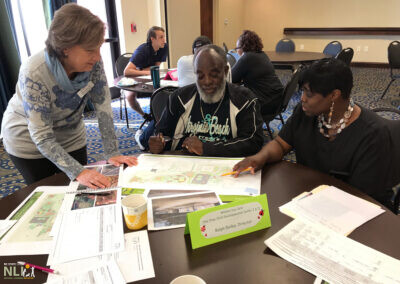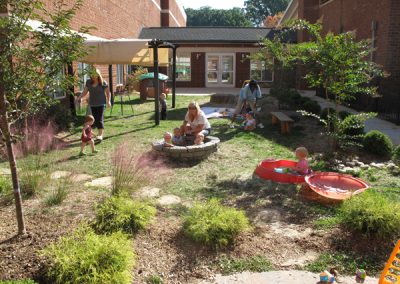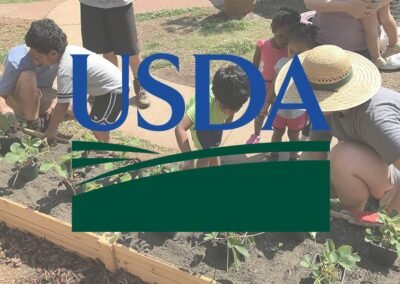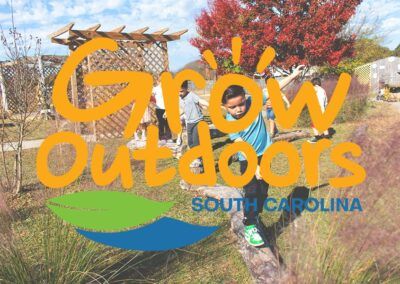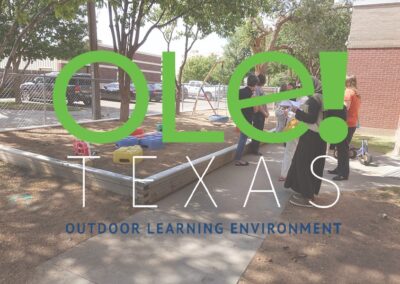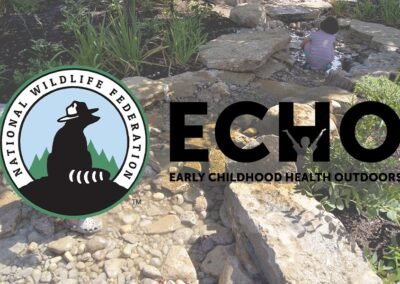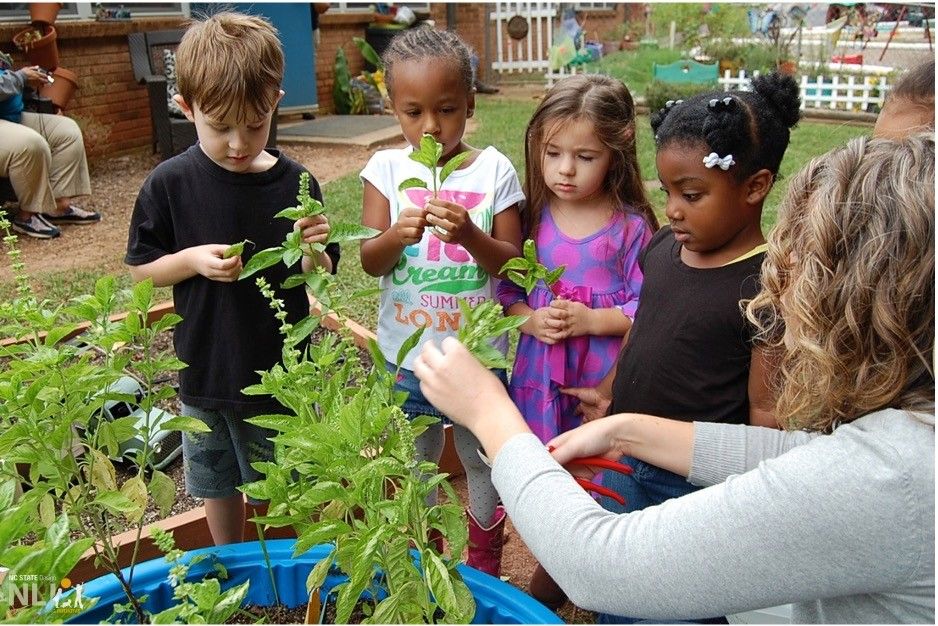For two decades, NLI has used naturalized, built-environment interventions as a strategy to improve children’s health and development outcomes through community engagement, landscape design, technical assistance, and professional development. A central focus is the implementation of cost-effective, naturalized outdoor learning environments (OLEs) in childcare centers, public schools, public parks, zoos, botanical gardens, and other nonformal education sites in North Carolina and beyond.
The primary goal is the co-creation of compelling places that increase biodiversity in daily life, “pull” children and families outdoors, engage them with nature, and encourage understanding of the interdependency of human health and the health of Planet Earth.
Support for NLI programs comes from private foundations, public agencies, private industry, and national agencies, including the Blue Cross and Blue Shield Foundation of North Carolina, the John Rex Endowment, National Science Foundation, Robert Wood Johnson Foundation, Institute for Museum and Library Science, US Fish and Wildlife Service, US Forest Service, and many other collaborating entities, including the National Wildlife Federation.
Programs
Programs integrate design assistance, evaluation, professional development, and policy initiatives, with the aim of achieving higher levels of long-term, sustained quality on the ground. Programmatic activities are usually tied to multi-year projects, which may also include strategic planning, inter-organization coordination, research, site visits, site analysis, community presentations, stakeholder meetings, design workshops, design reviews, training, and post-occupancy evaluation.
“These gardening activities remind me of my childhood. Activities like canning are becoming a lost art and it is important to pass them onto future generations… if they grow up and can’t buy food, they will at least have the skills to plant a seed.”
